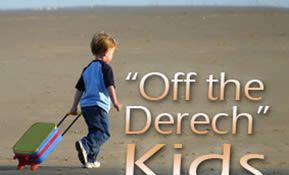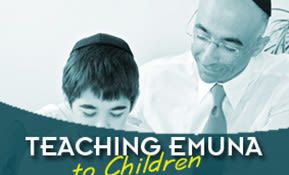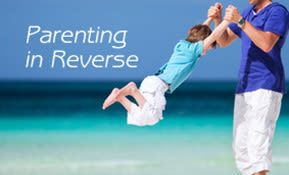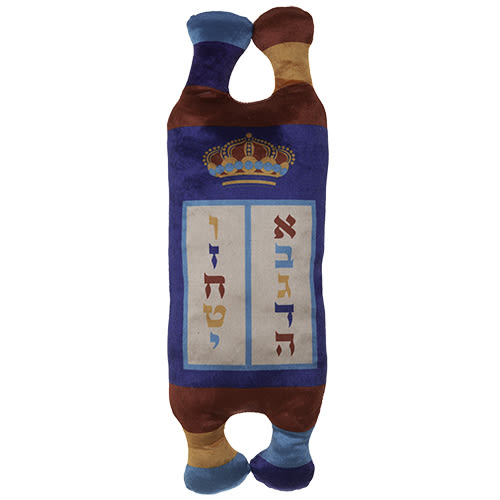
A Misused Torah
Why are many people more concerned with how thick their stockings are, or how long their payos (sidecurls) are, than how they’ve treated their families?

The other day I had a very difficult phone call with my oldest son Yehuda’s rebbe.
Miraculously, the conversation was not about how poorly Yehuda was learning, or how terribly he was behaving. In any case, I’m not letting my guard down. I still wait for that dreaded phone call every day.
After talking about how fabulously Yehuda was doing in school, and by “fabulously” I mean that he’s not failing, the rebbe switched the conversation to another topic.
“There’s a boy in class whom no one likes. Every day he goes home crying because the kids in class aren’t nice to him,” he told me.
My heart sank.
I know how that boy feels, because I was also not popular in school. I only had two friends, and I know the horrible feeling of having to face the same group of kids and get the same torment, day after day. After day.
It’s torture for a kid.
“What do you mean, ‘they’re not nice to him?’” I asked.
“I am trying to get them to be nicer to him and to include him, but it’s hard,” he told me. “They’re very resistant.”
I understood. It’s so hard to change a kid’s perception of another kid he doesn’t like.
“Have you spoken with their parents?” I asked.
“Yes, I’m working on it, but it’s not going as well as I’ve hoped.,” he sighed.
There’s a reason I brought up this other boy. I asked him who in the class he would like to be friends with. The only boy he mentioned was Yehuda.”
I was so happy to hear this!
“No problem. I’ll speak with him about it,” I told the rebbe.
The next day, I told Yehuda about my conversation with his rebbe. “But I’m already friends with him!” he exclaimed.
“Really? That’s great! Just include him more when you have free time at school, and speak with him more,” I told him.
“Okay, okay,” he rolled his eyes at me.
I understand kids will be kids, and they can be very mean sometimes. But it doesn’t mean that we, as parents, should let our kids get away with treating other kids poorly. We need to keep a close eye on their behavior at school by being in constant contact with their teachers.
Ignorance is no excuse.
Now. Let’s talk about why some kids are mean and some kids are friendly.
Every kid definitely comes with his own personality, but I absolutely refuse to believe and accept that some kids come with mean or bully-ish personalities.
I fully believe that these behaviors are learned from the home.
Some kids are more sensitive, some kids are shy, some kids can’t stop talking.
But ALL kids are good inside.
Their souls are pure and haven’t yet been tainted by the outside world.
Just as an aside, the whole deal with the kid being under the rule of the evil inclination until he’s 13 just means that he’s completely self-absorbed and finds it very difficult to be sharing and considerate. But it does not make him a mean kid.
When a kid is mean in school, it puts up a red flag that tells me something’s not right at home.
Either the parents are mistreating the kid, and his only outlet to release anger and frustration is at school, or the parents suffer from poor social skills and negative personality traits.
Both of these scenarios point at one (or two) culprits: the parents.
Yes, you. And me. Calling all parents.
Especially the Torah-observant parents out there.
How is it possible that someone is religious, yet has so little regard for his fellow man?
As I’ve experienced too many times in the religious community in Israel, some people fail miserably when it comes to applying the Torah to real life.
I’m talking about being nice to someone else. Being considerate. Not cutting in line. Saying hello when you pass each other on the street. Parking in a parking spot instead of in the middle of the street. Not pushing and shoving past each other. Saying, “excuse me.”
And all kinds of other common sense, people-related stuff.
Hello?! Isn’t the whole point of the Torah so that we can learn to be nice to one another? Love your neighbor?
So why are there so many people who are more concerned with how thick their stockings are, or how long their payos (sidecurls) are, than how they’ve treated their families, their friends, and everyone they’ve come into contact with that day?
Do they think Hashem is proud of them? Do they really think their lives are blessed when the action of the mitzvah becomes more important than the point of the mitzvah?
Was that story about the tzaddik Rabbi Hillel standing on one foot just a nice parable? Didn’t he himself say the whole point of the Torah is to love another as yourself?
In my opinion, if a person is so focused on being religious that he forgets what it’s all for, then his Torah and mitzvot are completely worthless.
Hashem doesn’t want anyone’s prayers if they can’t treat another with human dignity. He doesn’t care for a person’s requests to be blessed with wealth if they aren’t nice to their kids.
Now I’m not talking about those minor blowups or slips. We all have them. Every day, in fact.
Not a day goes by that I don’t get mad at my kids, snap at my husband, or get reactive to some stranger. But I recognize my faults and try to do better.
What I’m talking about is those people so stuck in themselves, those people who really believe that they’re so righteous because they’re hyper-focused on following the extra stringencies on top of halacha that aren’t even necessary.
Those people are missing the point.
It doesn’t matter how righteous you try to look or act on the outside. It doesn’t matter if you learn Torah 18 hours a day.
If you’re not good to others, your Torah is worthless.
Parents, I know life is stressful and so are kids. I suggest you read Education with Love for some helpful insights that will help you give your kids more love and positive reinforcement. We all know that strict discipline and power plays don’t work for this generation.
Our kids need love, more than anything.
And they also need positive role models. Ultimately, they mimic our behavior, for better and for worse.
If you haven’t yet read Education with Love, get it now. Your kids deserve parents who lead by example, not empty rhetoric.
Our positivity won’t just affect our kids. It will affect everyone that our kids come into contact with. For the rest of their lives.











Tell us what you think!
Thank you for your comment!
It will be published after approval by the Editor.